Vuoi imparare l'inglese come si deve ?
La soluzione è: il per-corso con giulia .
- Il Percorso fatto su misura per te e i tuoi obiettivi.
- Basato sul le difficoltà tipiche degli italiani con l'inglese.
- Da fare online nei giorni e negli orari che preferisci.

E per tutta la durata del tuo per-corso con Giulia... ACCESSO GRATIS al C orso di inglese 365 * 10 ( prova una lezione )
Vai al : Per-Corso con Giulia ➧

Viaggiare in inglese: differenze tra trip, travel, journey, voyage…
Trip vs travel.
Per noi è semplicemente “viaggio” ma per gli inglesi ci sono diverse parole: trip, travel, journey, voyage …
Cerchiamo di fare chiarezza. Puoi leggere l’articolo oppure guardare il video qui sotto.
Supera il colloquio in inglese
Un mini-percorso personalizzato per:.
- Gestire con efficacia il colloquio di lavoro in inglese
- Aumentare il successo della tua candidatura
- Ottenere il lavoro che desideri
Scopri come Giulia ti preparerà al colloquio di lavoro in inglese !

Innanzitutto il vocabolario ci darà per tutti i termini tra i primi risultati la traduzione di “viaggio”, anche se con diverse suggestioni…
- trip : viaggio, gita, escursione…
- travel : viaggi (come in “ travel agency ” = “agenzia di viaggio”), viaggiare…
- journey : viaggio, percorso, tragitto
- voyage : viaggio, traversata.
Ma affrontiamo approfonditamente ciascuna di queste parole…
La parola “ travel ” si usa per parlare di un viaggio che implica il movimento da un posto a un altro.
Può essere un verbo, un nome o un aggettivo.
- verbo: I travel a lot in my job. Claire from UK Faith from USA Viaggio molto per lavoro.
- aggettivo: I have to go to my travel agency. Dylan from UK Adam from USA Devo andare alla mia agenzia di viaggi.
- sostantivo: Get ready for your travel in India! Claire from UK Emily from USA Preparati per il tuo viaggio in India!

The world is a book and those who do not travel read only one page. Alice from UK Faith from USA Il mondo è un libro e quelli che non viaggiano leggono solo una pagina. Augustine of Hippo

Questo corso è strutturato bene, intuitivo e molto semplice da seguire. L'idea di imparare 10 parole al giorno è un buon metodo per imparare oltre alle semplici e banali parole inglesi che ormai conoscono tutti. È il primo corso di inglese che è stato ideato e fatto veramente bene. Complimenti,... [LEGGI TUTTO]

PROVALO ADESSO! ➧
La parola “ trip ” si usa per viaggi di breve durata.
We went on a trip to Venice. Ben from UK Carol from USA Abbiamo fatto una gita a Venezia.
Con la parola “ journey ” si intende più la distanza coperta nel tragitto da un posto all’altro.
The journey was long and tiring. Ben from UK Faith from USA Il viaggio è stato lungo e faticoso.
Did you have a good journey? Alice from UK Adam from USA Hai fatto un buon viaggio?
How long is your journey to work? Claire from UK Faith from USA Quanto ci metti ad arrivare al lavoro?

If you fuel your journey on the opinions of others, you are going to run out of gas. Claire from UK David from USA Se alimenti il tuo viaggio con le opinioni degli altri, finirai la benzina. Steve Maraboli
Nota il verbo frasale “ run out of “.
The journey of a thousand miles begins with a single step. Ben from UK David from USA Il viaggio di mille miglia inizia con un singolo passo. Lao Tzu
TEST DI INGLESE
Cosa significa " actually " in inglese.
- attualmente
Cosa significa " eventually " in inglese?
- eventualmente
Cosa significa " pretend " in inglese?
Cosa significa " large " in inglese, cosa significa " factory " in inglese, cosa significa " library " in inglese, cosa significa " stage " in inglese.
- palcoscenico
Cosa significa " to stamp " in inglese?
Cosa significa " agenda " in inglese, cosa significa " to adjust " in inglese, risposte giuste su 10.
Con la parola “ voyage ” si intende invece un viaggio molto lungo, per esempio per mare o nello spazio.
Voyages of exploration. Dylan from UK Carol from USA Viaggi di esplorazione.
A voyage through space and time. Claire from UK Emily from USA Un viaggio nel tempo e nello spazio.
Un’altro suggerimento per capire le differenze tra “ Trip ” e “ Travel ” potrebbe essere questo:
- Travel è una parola più generale che descrive l’atto di andare da un posto all’altro senza per forza implicare il viaggio di ritorno.
- Trip è un viaggio di relativamente più breve durata, che ha uno scopo (vacanza, lavoro) e che include di solito il ritorno.
Confusi? Purtroppo questo potrebbe essere uno di quei casi in inglese che si imparano con la pratica.
Provate a trovare esempi di travel, trip, voyage e journey e inseriteli nei commenti qui sotto…
ADESSO TOCCA A TE: INVESTI NEL TUO INGLESE!
Prova con il nostro corso di inglese 365*10 , il corso che abbiamo preparato per rendere l’apprendimento dell’inglese il più “appassionante” e “motivante” possibile! 😁
Vuoi un un Percorso d’Inglese Personalizzato o migliorare il tuo Inglese Professionale ? Contatta Giulia! Sei un principiante e hai bisogno di un percorso strutturato? Vai al Percorso d’inglese per Principianti .
Voglio ringraziarti per il tuo apprezzamento: Vai alla lezione di prova del nostro corso di inglese 365*10 ... se poi ti piace vai a questo link segreto (riceverai uno sconto di €40 euro per 4 anni di accesso al nostro corso di inglese)! 😊
Come possiamo migliorare?
Scrivicelo qui sotto nei commenti...
I Nostri Corsi

C orso di inglese 365 * 10
Un corso completo, esauriente, pensato per chi vuole imparare sul serio... ma senza annoiarsi! 😊
- parole al giorno
- ESEMPI MEMORABILI
- esercizi di comprensione orale
- esercizi per memorizzare le parole
SCOPRI DI PIÙ ➧
O vai alla lezione di prova !

C orso di inglese sui False Friends
Il corso che ti farà evitare inutili malintesi, incomprensioni... e anche qualche figuraccia! 😁
ACQUISTA ORA ➧
O prova una lezione !

Curse Words
Un corso che affronta il tema del linguaggio scurrile in inglese, per imparare a conoscerlo... 😱
Scrivici per saperne di più!
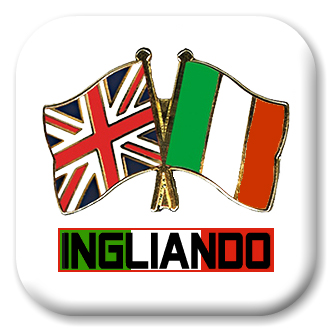
IL TUO PROF DI INGLESE SEMPRE ONLINE

Journey, trip or travel: what’s the difference?
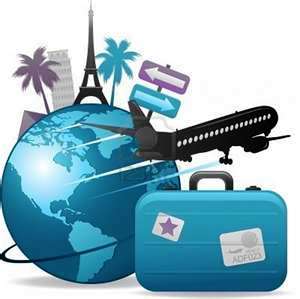
journey / trip / travel
Sono tre vocaboli spesso confusi tra di loro e usati in modo erroneo. Cerchiamo di capire quali sono le differenze principali tra di loro in modo da poterli usare correttamente.
Journey è principalmente un sostantivo. Viene usato come verbo poco e quasi esclusivamente nella lingua scritta. Come sostantivo si riferisce ad un specifico tragitto singolo, a senso unico, e mette l’enfasi proprio sul percorso stesso piuttosto che sulla meta. Spesso viene usato con riferimento a viaggi lunghi e/o ardui, oppure per enfatizzare la durata (tempo) o la lunghezza (distanza) del viaggio. Vediamo degli esempi tipici facendo attenzione ai verbi e agli avverbi che vengono spesso abbinati a journey :
- Did you have a good journey ?
- Hai fatto un buon viaggio?
- The journey back was terrible.
- Il viaggio di ritorno è stato terribile.
- It was the start of a long journey .
- Fu l’inizio di un lungo viaggio.
- Fortunately the journey didn’t take us very long .
- Per fortuna il viaggio non ci ha impiegato molto tempo.
- The return journey is much quicker.
- Il viaggio di ritorno è molto più veloce.
- It’s a three hour journey to London from here.
- È un viaggio di tre ore per Londra da qui.
- The outward journey was more enjoyable.
- Il viaggio di andata è stato più gradevole.
- My journey from England to Sicily by train was fascinating.
- Il mio viaggio dall’Inghilterra alla Sicilia è stato affascinante.
- It’s a two hundred kilometre journey to the next big town.
- È un viaggio di duecento kilometri alla prossima grande città.
- Have a safe journey !
- Fai un viaggio tranquillo.
► Esempio di journey come verbo: (da sostituire con travel nella lingua parlata)
- They journeyed across the desert until they came to the sea.
- Hanno viaggiato attraverso il deserto finché non hanno raggiunto il mare.
Anche trip è fondamentalmente un sostantivo , almeno per quanto riguarda il contesto sotto esame, solo che in questo caso ci interessa tutto il viaggio compreso il soggiorno. In un certo senso potremo dire che è più vicino all’idea di escursione, gita, soggiorno, vacanza, viaggio con uno scopo specifico . Di solito si tratta di un viaggio che non sia di lunga durata. Vediamo degli esempi tipici facendo attenzione ai verbi e agli avverbi che vengono spesso abbinati a trip :
- We had a lovely trip to Brighton yesterday.
- Abbiamo fatto una bella gita a Brighton ieri.
- Our trip to New York was a total disaster.
- Il nostro viaggio a New York è stato un totale disatro.
- You can do a day trip to Cambridge from here.
- Puoi fare una gita di un giorno a Cambridge da qui.
- I’m afraid Tom’s on a business trip at the moment.
- Mi dispiace ma Tom è in un viagggio di lavoro al momento.
- They went for a three day trip around the islands.
- Hanno fatto un viaggio di tre giorni attorno alle isole.
- What was your trip to Amsterdam like ?
- Com’è stato il tuo viaggio ad Amsterdam?
- Bob’s Sunday fishing trips were legendary.
- Le battute di pesca domenicali di Bob erano leggendarie.
- The students are going on a field trip to Stonehenge.
- Gli studenti faranno una gita didattica a Stonehenge.
- Why don’t you take a trip on the river this afternoon?
- Perché non fate una gita sul fiume oggi pomeriggio?
- Have a good trip .
- Fate un buon viaggio.
Travel , invece, è usato quasi esclusivamente come verbo e solo occasionalmente come sostantivo. L’errore più comune è quello di usare travel come sostantivo invece di journey oppure trip . Esistono, però, numerosi sostantivi composti basati sulla parola travel che vedremo in seguito. Prima vediamo degli esempi tipici del verbo travel in uso:
- How do you travel to work?
- Come vai al lavoro?
- Bob travels to Spain about three times a year.
- Bob va in Spagna circa tre volte all’anno.
- We’ re travelling by plane to London and then by train to Brighton.
- Andremo a Londra con l’aereo e poi col treno a Brighton.
- I’m only taking one bag. I prefer to travel light .
- Porto una borsa sola. Preferisco viaggiare leggero.
- Jane loves travelling in the summer.
- Jane ama viaggiare in estate.
- I’ ve only travelled first class once in my life.
- Ho viaggiato in prima classe solo una volta nella mia vita.
- Tom often travels abroad for work.
- Tom viaggia spesso all’estero per lavoro.
- Bob ‘s great-grandfather once travelled on the Orient Express.
- Il bisnonno di Bob ha viaggiato una volta sull’Orient Express.
- We can’t travel tomorrow. There’s a train strike.
- Non possiamo viaggiare domani. C’è uno sciopero dei treni.
- If you’re under 12 years old you can travel free .
- Se hai meno di 12 anni puoi viaggiare gratis.
► Esempi di travel come sostantivo:
- He wrote a book about his travels in Africa.
- Egli ha scritto in libro dei suoi viaggi in Africa.
- Air travel is much cheaper now than before.
- Viaggiare in aereo è molto più economico adesso che prima.
- Bob loves good food and travel
- Bob ama il buon cibo e viaggiare.
► Sostantivi composti con travel :
- Travel agency = agenzia di viaggi
- Travel agent = agente di viaggi
- Travel arrangements = piano di viaggio
- Travel clock = orologio da viaggio
- Travel companion = compagno di viaggio
- Travel expenses = spese di viaggio
- Travel guide = guida turistica (persona/libro)
- Travel sickness = nausea causato dal mezzo di trasporto
- Travel time = tempo di tragitto
N.B. Mentre journey e trip possono essere usati indiscriminatemente a volte, una differenza c’è, come illustra questo esempio:
- The trip went very well, but the return journey was a disaster.
- Il viaggio (completo) è andato molto bene, ma il viaggio (tragitto) di ritorno è stato un disastro.

Your comments are always very welcome.
- Click to share on Facebook (Opens in new window)
- Click to share on Twitter (Opens in new window)
- Click to share on WhatsApp (Opens in new window)
- Click to share on Telegram (Opens in new window)
- Click to share on LinkedIn (Opens in new window)
- Click to share on Pocket (Opens in new window)
- Click to email a link to a friend (Opens in new window)
- Click to print (Opens in new window)
Author: Tony
Born and raised in Malaysia between Kuala Lumpur and Singapore. Educated at Wycliffe College in Stonehouse, Gloucestershire, England. Living in the foothills of Mount Etna since 1982 and teaching English at Catania University since 1987. View all posts by Tony
2 thoughts on “Journey, trip or travel: what’s the difference?”
wonderful summary!
Thank you! 🙂
Partecipa anche tu! Cancel reply
This site uses Akismet to reduce spam. Learn how your comment data is processed .

- Already have a WordPress.com account? Log in now.
- Subscribe Subscribed
- Copy shortlink
- Report this content
- View post in Reader
- Manage subscriptions
- Collapse this bar
- Corso Principiante (A1/A2)
- Corso Intermedio (B1/B2)
- Corso Avanzato (C1/C2)
- Lezioni private
“TRIP”, “JOURNEY” e “TRAVEL”: Quali sono le differenze in inglese?
Oggi ci immergiamo nel mondo del lessico dei viaggi in inglese , specificamente per comprendere le sfumature tra un trip , una journey , e cosa significa travel . Sei pronto a intraprendere questa avventura linguistica? Iniziamo.
Impara il Lessico inglese sui Viaggi
Un trip e una journey sono spesso usati in modo intercambiabile, ma hanno significati sfumati in inglese.
Che cos’è un “Trip” in inglese?
Un trip si riferisce tipicamente a una breve escursione o viaggio, spesso per scopi di svago o lavorativi . È un’esperienza breve lontano da casa, come una fuga per il weekend o una conferenza di lavoro in un’altra città. I trips sono solitamente pianificati e organizzati con obiettivi specifici in mente. Ad esempio, potresti fare un trip a Parigi per vedere la Torre Eiffel o a New York per una riunione di lavoro.
Che cos’è una “Journey” in inglese?
D’altra parte, una journey implica un’esperienza più lunga e trasformativa. Riguarda il processo di viaggio e la crescita personale di scoperta che ne deriva. Le journeys possono essere trasformativo, fisico, emotivo o addirittura metaforico , come un viaggio di autoscoperta. Ad esempio, una journey potrebbe essere un viaggio di un anno zaino in spalla attraverso l’Asia, dove ti immergi in diverse culture e impari su te stesso lungo il cammino.
Rispetto ai trips, le journeys sono meno focalizzate sulla destinazione e più sulle esperienze e i cambiamenti che avvengono durante il viaggio.
Esplorare i Tipi di Viaggio
Esistono vari tipi di esperienze di viaggio, ciascuna delle quali offre opportunità uniche per esplorare e scoprire:
- Vacations: Viaggi effettuati per relax o svago , spesso verso destinazioni turistiche o luoghi panoramici. Questi sono ben pianificati con itinerari che includono visite turistiche, ristorazione e relax. Esempi includono vacanze al mare alle Maldive o un viaggio in famiglia a Disneyland.
2. Business Trips: Questi sono viaggi intrapresi per scopi lavorativi , come riunioni, conferenze o visite a siti. Questi trips sono spesso brevi e si concentrano sul raggiungimento di obiettivi professionali specifici. Ad esempio, viaggiare per partecipare a una conferenza a Berlino o per incontrare clienti a Tokyo.
3. Adventure Travel : Escursioni che coinvolgono attività all’aperto o l’esplorazione di terreni impegnativi. Questo tipo di viaggio è per chi cerca brivido ed emozione, come fare escursioni negli Himalaya o immersioni subacquee.
4. Cultural Travel: Questi viaggi si concentrano sull’esperienza di diverse culture, tradizioni e stili di vita . Questo tipo di viaggio è arricchente e educativo, permettendo ai viaggiatori di apprendere la storia culturale di un luogo specifico. Ad esempio, visitare rovine a Roma, partecipare a una cerimonia del tè tradizionale in Giappone o partecipare a festival locali in un altro paese.
Ogni tipo di viaggio arricchisce la nostra comprensione del mondo e di noi stessi, offrendo esperienze e ricordi preziosi.
Vocabolario Chiave per Viaggiare in Inglese
Comprendere e utilizzare questi termini ti aiuterà a discutere i tuoi piani e le tue esperienze di viaggio in modo più efficace:
- Booking : Prenotare voli, hotel o altre sistemazioni. Esempio: “I booked my flight to London last night.”, “Ho prenotato il mio volo per Londra ieri sera.”
- Itinerary : Un piano o programma di attività durante un viaggio. Esempio: “Our itinerary includes visits to the Louvre and the Eiffel Tower.”, “Il nostro itinerary include visite al Louvre e alla Torre Eiffel.”
- Explore : Viaggiare o visitare posti diversi per piacere o avventura. Esempio: “We spent the afternoon exploring the old town.”, “Abbiamo passato il pomeriggio esplorando il centro storico.”
- Adventure : Un’esperienza emozionante o insolita che spesso comporta rischio o sfida. Esempio: “Our hike up the volcano was a true adventure.”, “La nostra escursione sul vulcano è stata una vera adventure.”
- Destination : Il luogo verso cui qualcuno si sta dirigendo o dove qualcosa viene inviato. Esempio: “Our final destination is Tokyo, but we’ll make a few stops along the way.”, “La nostra destination finale è Tokyo, ma faremo alcune soste lungo il percorso.”
- Culture : Le usanze, le arti, le istituzioni sociali e i successi di una nazione, popolo o gruppo sociale particolare. Esempio: “Experiencing the local culture is one of the best parts of traveling.”, “Vivere la cultura locale è una delle migliori parti del viaggiare.”
Immersione Culturale Attraverso il Viaggio
Immersarsi nelle culture locali mentre viaggiamo favorisce l’apprezzamento della diversità e dell’interconnessione globale.
- Cuisine : Assaporare cibi e bevande tradizionali, esplorare mercati locali e apprendere tradizioni culinarie.
- Language: Interagire con i locali, apprendere frasi di base e apprezzare l’importanza del linguaggio nello scambio culturale.
- Traditions : Partecipare a festival, cerimonie o rituali per vivere in prima persona le usanze locali.

Condividere le Esperienze di Viaggio
Condividere le nostre esperienze di viaggio ci consente di connetterci con gli altri e ampliare le nostre prospettive. Descrivi momenti memorabili, incontri culturali e intuizioni personali acquisite durante i viaggi. Ad esempio, racconta un incontro emozionante con la fauna durante un safari o condividi la gioia di assistere a un festival locale. Discuta di come il viaggio abbia influenzato la tua visione del mondo o le tue credenze e come un viaggio di avventura ti abbia sfidato e rafforzato.
Attività per Te: Riflessone sulle Esperienze di Viaggio
Ora tocca a te partecipare! Rifletti su un’esperienza di viaggio memorabile che hai vissuto e scrivi una voce nel tuo diario a riguardo. Usa i seguenti spunti per guidare la tua scrittura:
- Descrivi la destinazione e perché hai scelto di visitarla.
- Condividi i tuoi momenti o esperienze preferiti durante il viaggio.
- Discute eventuali incontri culturali o tradizioni che hai osservato.
- Rifletti su come questo viaggio abbia impattato la tua comprensione del mondo o di te stesso.
Sfida te stesso a usare il vocabolario relativo ai viaggi del video di oggi nella tua voce del diario. Condividi le tue riflessioni nei commenti qui sotto e interagisci con altri spettatori per apprendere dalle loro esperienze!
Comprendere le distinzioni tra un trip, una journey e il concetto più ampio di travel arricchisce le nostre abilità linguistiche e la nostra consapevolezza culturale. Ci permette di comunicare efficacemente le nostre esperienze e apprezzare la diversità del mondo.
Grazie per avermi accompagnato in questo viaggio del travel in inglese. Quali aspetti dell’apprendimento delle lingue o dei viaggi vorresti esplorare ulteriormente? Fammi sapere nella sezione dei commenti qui sotto. Alla prossima, buon viaggio e a presto!
Se vuoi continuare a studiare, non perderti questo articolo: Vocabolario di Paesi, Nazionalità e Lingue in Inglese: Forme Aggettivali e Sostantivali
Lascia un commento Annulla risposta
Il tuo indirizzo email non sarà pubblicato. I campi obbligatori sono contrassegnati *
Salva il mio nome, email e sito web in questo browser per la prossima volta che commento.

Travel vs. Trip vs. Journey

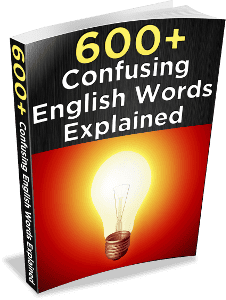
The act of going to another place (often for a short period of time) and returning.
- We took a five-day trip to the Amazon.
- You’re back from vacation! How was your trip ?
- I went on business trips to Switzerland and Germany last month.
Use the verbs “take” and “go on” with trip .
- A round-trip ticket is a ticket for going and coming back.
- A one-way ticket is only for going.
Travel (v.)
Going to another place (in general).
- I really like to travel.
- He travels frequently for work.
- My sister is currently traveling through South America.
Travel (n.) can be used to describe the act of traveling in general:
- Travel in that region of the country is dangerous.
- World travel gives you a new perspective.
Incorrect uses of travel :
- I bought this shirt on my travel to Thailand. I bought this shirt on my trip to Thailand.
- I’m planning a travel to the U.S. next year. I’m planning to travel to the U.S. next year. I’m planning a trip to the U.S. next year.
Journey (n.)
One piece of travel (going from one place to another) – usually a long distance.
- The journey takes 3 hours by plane or 28 hours by bus.
- He made the 200-mile journey by bike.
- “A journey of a thousand miles must begin with a single step” – Lao-tze, Tao Te Ching
We can also use journey in a more “metaphorical” way to talk about progress in life:
- He has overcome a lot of problems on his spiritual journey.
- My uncle is an alcoholic, but he’s beginning the journey of recovery.
Quiz: Travel, Trip, or Journey
- Then and Than
- Affect and Effect
Clear up your doubts about confusing words… and use English more confidently!

You might also like...
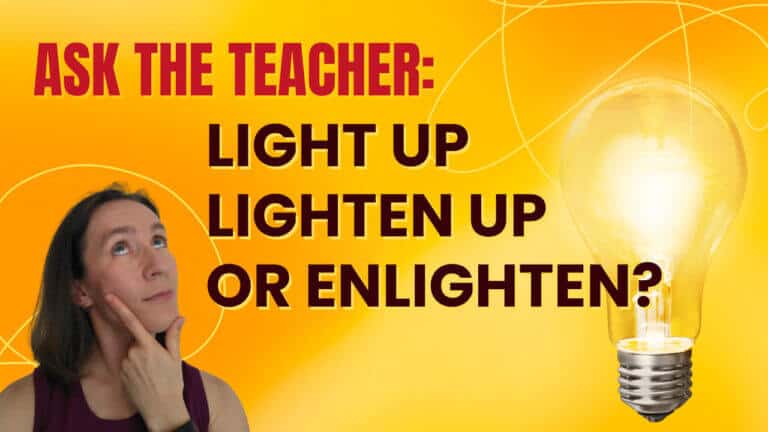
Light up, Lighten up, or Enlighten?
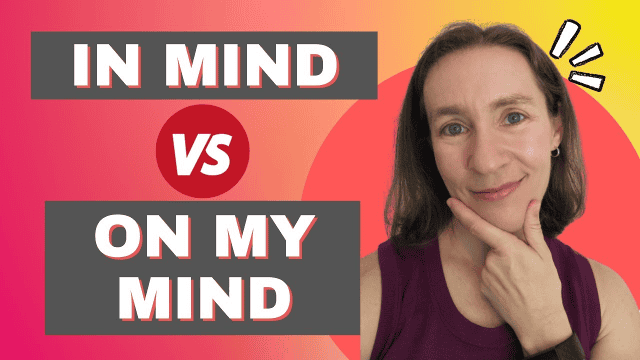
In mind vs. On my mind
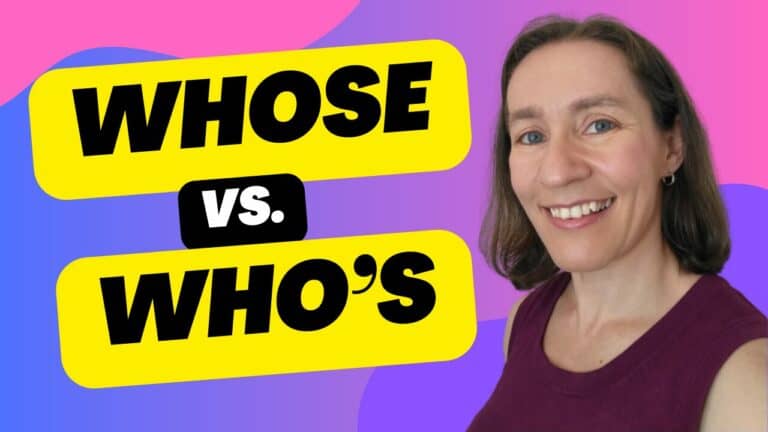
Whose vs. who’s: Difference & Examples

Hi, I’m Shayna. I create courses helping English as a Second Language learners become more fluent in just a few minutes a day – so they can speak English naturally and confidently in work and daily life.

Travel, trip, journey: che confusione questi termini inglesi!

Journey, trip e travel sono tre termini della lingua inglese che creano spesso confusione tra chi sta imparando questa lingua.
Tra poche settimane ricominciano i corsi di inglese e come argomento delle prime lezioni ci saranno sicuramente i viaggi, le vacanze e le gite fuori porta dei nostri studenti.
Questi racconti porteranno con sè i consueti errori dovuti alla confusione dei termini inglesi che indicano i viaggi e il viaggiare : travel, trip e journey .
La confusione è dovuta al fatto che nella lingua italiana abbiamo un solo termine che riassume le tante sfumature che troviamo nei vari termini inglesi, e quindi incorrere nell’errore è spesso inevitabile.
(Leggi Come riconoscere un corso di gruppo di qualità )
Vediamo però di fare un po’ di ordine!
Questo termine viene usato come sostantivo e indica l’atto di spostarsi da un posto all’altro, spesso per un breve periodo di tempo , e ritornare (qualcosa di simile ad una gita o escursione).
Sara and her mum took a five-day trip to Barcelona.
You’re back from your holiday! How was your trip?
I went on business trips to England and Germany last month.
Con il termine trip si usano i verbi take e go on .
Travel invece è un verbo e indica in generale lo spostarsi verso un luogo diverso.
Niki really likes to travel. Sheila frequently travels for work.
My sister is currently travelling through South America.
Travel può essere usato come sostantivo solo per indicare l’atto di viaggiare in generale.
World travel gives you a new perspective.
Errori comuni nell’uso di questo vocabolo li troviamo negli esempi seguenti:
How was your travel? Meglio chiedere: How was your trip?
I’m planning a travel to the U.S. next year. Più corretto dire: I’m planning to travel to the U.S. next year oppure I’m planning a trip to the U.S. next year.
Spesso si incontra il termine travel in parole composte come:
travel documents travel tickets travel agents travel sickness
(Impara anche la differenza tra questi phrasal verbs per viaggiare)
E’ il sostantivo che indica il singolo spostamento verso un luogo, di solito su una lunga distanza.
The journey takes 3 hours by plane or 28 hours by train. He made the 200-mile journey by bike.
La parola tour
Infine qualche parola sul termine tour che tutti conosciamo e che usiamo anche nella lingua italiana.
Possiamo parlare di un sightseeing tour se desideriamo trascorrere del tempo a visitare monumenti e attrazioni di una città, meglio se con la supervisione di una guida turistica (parleremo quindi di guided tour ).
Con il termine package tour si intende invece un tour che comprende diversi servizi, come l’alloggio e il volo, ed è gestito solitamente da un tour operator .
Se invece si opta per qualcosa di più personalizzato, si parla di customized tour oppure di tailor-made tour .
Qualunque siano i vostri programmi per il weekend, non mi resta che augurarvi buon viaggio, o meglio:
Have a nice trip, or travel, or journey???
(Leggi anche Qual è la differenza tra rent, hire e let ? )
Privacy Overview

Vocabulary: Differences between travel, journey, trip, voyage and tour
Published 29/07/2015 In Blog
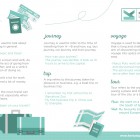
The Summer holidays are around the corner so it is definitely a good time to post an article on my blog explaining the difference between all these words.
Travel, journey, trip, voyage and tour can be easily confused by all those students learning English, so below are clear explanations of how to use the 5 terms:
*Verbs: Louise travels a lot for work *Nouns: Travel the way you wish to go
learn english online voyage journey travel trip tour online english course learn english on skype differences between voyage journey travel trip and tour English grammar

Blog categories
- Spanish Grammar
- English Grammar
- Grammar Activities

contact | any questions?
Contact details, message information.

VOCABULARY: Travel, Journey or Trip? What's the difference?
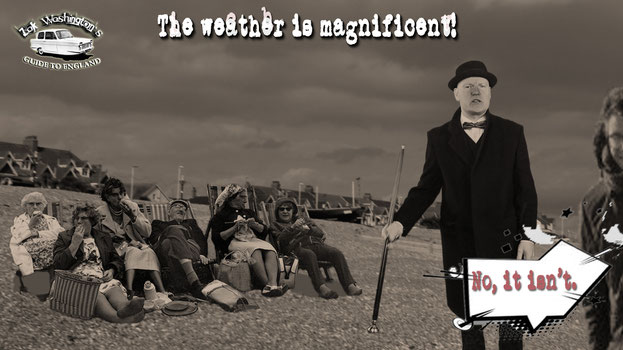
To travel is, of course, a verb but not normally a noun unless it is in a literary context e.g. Gulliver’s Travels (a book by Jonathan Swift), or a long, extensive tour.
In everyday English, we would refer to travelling by saying a journey , or a trip , the difference being that a trip talks of the whole process of going, doing what you do, and then returning.
A journey is used more to refer to the journey itself, although often there is little difference. Compare the following: ‘The journey was rotten. The fat man who sat next to me snored all the time.’ ‘The trip was great, we managed to do everything that we had intended.’
To journey is an archaic verb not used now. To trip exists but it has a completely different meaning; ‘to fall over an object’; ‘He tripped over the step and spilt all the drinks.’
To voyage only refers to a long journey made at sea.

Write a comment
- Scroll to top
- contattaci
- Corsi Aziendale
- Corsi Privati
- Inglese a Saronno
- Corsi d'inglese estivi
- Inglese in Inghilterra
- Risorse di lingia inglese
- Quiz in inglese
- Guida Grammaticale
- Inglese Commerciale
- Test di Livello
Commonly Confused words
Travel, trip, journey and voyage.
The words 'travel', 'journey', 'trip' and 'voyage' are often confused, but have different meanings and uses.
Travel 'Travel' is used as both a verb and a noun.
Verb: 'To travel', means to go from one place to another.
Last year I travelled to China on my holidays.
When I visit Rome, I always travel by car.
Light travels faster than sound.
Noun: 'Travel' refers to the activity of travelling in general. Travel is usually uncountable. It is sometimes used in a plural form in spoken English, when it means a long tour in which several places are visited, or refers in general to the travelling that a person has done.
I am interested in travel.
I have met many interesting people on my travels.
Is he back from his travels yet?
Journey is a countable noun. A journey is 'one piece of travelling'.
We went on a journey to India last year.
Did you have a good journey? (Not: Did you have a good travel?)
'Trip' is a countable noun and refers to a return journey (to, and back from, a place). It usually refers to a journey which takes a short time, or covers a short distance. It can also be used with an adjective to describe the type of trip.
We went on a day-trip to Venice. (We went to Venice and returned home the same day.)
He is on a business trip.
'Voyage' is a countable noun, used to describe a long sea journey, but it is also sometimes used to describe journeys in space.
The Titanic sunk on its maiden voyage.
Columbus set out on his Voyage to America in 1492.
© Insegnanti-Inglese 2018
- Rules/Help/FAQ Help/FAQ
- Members Current visitors
- Interface Language
Follow along with the video below to see how to install our site as a web app on your home screen.
Note: This feature may not be available in some browsers.
- Italian-English
Travel - journey - trip - voyage
- Thread starter pegaso
- Start date Jun 10, 2005
- Jun 10, 2005
I need help! Is it correct? How long does the train journey from London to .....take? or I have to use travel? Many thanks
Ciao Penso che è "trip" perche journey è un viaggio che dura.
Camille said: Ciao Penso che è "trip" perche journey è un viaggio che dura. Click to expand...
Senior Member
pegaso said: I need help! Is it correct? How long does the train journey from London to .....take? or I have to use travel? Many thanks Click to expand...
germinal said: Hello Pegaso. You can say: How long does the train journey from Leeds to London take? How long does it take to travel from Leeds to London by train? Germinal . Click to expand...
- Jan 17, 2006
"Journey" and "trip" are often interchangable, although "journey" probably would describe an endeavor that was longer and perhaps more arduous than a "trip." "Travel" is what you are doing when you are taking a "trip" or a "journey."
Tommaso Gastaldi
carrickp said: "Journey" and "trip" are often interchangable, although "journey" probably would describe an endeavor that was longer and perhaps more arduous than a "trip." "Travel" is what you are doing when you are taking a "trip" or a "journey." Click to expand...
I think someone told me that there's another name for a travel by ship (or on ship?): is it voyage? Can I apply "trip" or "journey" to any kind of "viaggio" or only to those not made by/on ship???
It would be nice to find the correspondence for all the Italian terms of this kind: Here a few which I can think of right now: viaggio viaggetto gita gitarella escursione escursioncina giro giretto capatina puntata puntatina scappata volata crociera trasvolata salto andata pellegrinaggio visita scampagnata attraversata safari vacanza galoppata corsa camminata passeggiata [please add!] Let's see what you propose for each one...
Willi said: I think someone told me that there's another name for a travel by ship (or on ship?): is it voyage? Can I apply "trip" or "journey" to any kind of "viaggio" or only to those not made by/on ship??? Click to expand...
viaggio - voyage, trip gita - tour escursione - excursion, outing, day trip giro - tour, walk vacanza - vacation, holiday capatina - -- puntata - appointment scappata - escape, getaway volata - getaway (forse) crociera - cruise safari - safari
scappata - escape, getaway Click to expand...
faccio una scappata dal lattaio e torno Click to expand...
yes "capatina", "puntata/ina" and "scappata" have all the same meaning more or less
always more to learn ~ thank you
- Jan 18, 2006
Tommaso Gastaldi said: As you put it it would seem that travel is only used as a "verb"... Is that what you mean? Or, perhaps, you mean it's a more generic term? Click to expand...
Adriana_Italy
How about this one I'll just "nip" to the shops, I won't be long. where "nip" suggests a very short journey that doesn't take much time. or "Hop" in for a coffee if you have time. anche qui il tragitto è breve e il tempo è al minimo. Vuolendo possono essere intercambiabili.
Adriana_Italy said: How about this one I'll just "nip" to the shops, I won't be long. where "nip" suggests a very short journey that doesn't take much time. or "Hop" in for a coffee if you have time. anche qui il tragitto è breve e il tempo è al minimo. Vuolendo possono essere intercambiabili. Click to expand...
I am trying to recap. Make your suggestions and comments. I will edit this scheme accordingly: Schema preliminare da editare in base ai feedback: viaggio -------------------- travel, journey, trip viaggetto ------------------ gita ----------------------- trip gitarella ------------------ trip escursione ----------------- excursion, outing, day trip escursioncina -------------- giro ----------------------- tour, walk giretto -------------------- capatina ------------------- quick stop ? puntata -------------------- quick stop puntatina ------------------ quick stop ? scappata ------------------- nip, dash, run volata --------------------- dash/run ? crociera ------------------- cruise, journey traversata ----------------- trasvolata ----------------- salto ---------------------- andata --------------------- pellegrinaggio ------------- visita --------------------- scampagnata ---------------- attraversata --------------- safari --------------------- safari galoppata ------------------ corsa ---------------------- camminata ------------------ passeggiata ---------------- vacanza -------------------- holiday, vacation ?
lsp said: "Nip" is not used with this meaning in AE, so I'm guessing it's BE? or AuE? Click to expand...
Nip; I use this word almost every day to mean 'leave and come back in a short space of time', its very coloquial and informal, but not at all offensive. Most commonly used as the present participle e.g. the -ing form; 'I'm just nipping out for a sandwich' 'I'm just nipping down the corridor to the coffe machine, anyone want one?' 'Just nipping over to the photocopier, back in a minute' 'Just nipping off to Italy for the weekend, see you Monday' (I wish) It can also mean a small bite; 'I offered the rabbit a carrot, and he nipped my finger by mistake' Removing a small portion of something, e.g. 'nip and tuck' - a cosmetic surgical operation, To move fast and manouver easily; 'it's a nippy little car', Or an air frost; 'There's a chilly nip in the air tonight'. Also 'Nipper' (slang) a young child (there is equivalent Australian slang of 'ankle biter') Panpan
- Feb 19, 2007
Two years after... Could an English-native give some other examples of sentences with journey - travel - trip (travel as a noun, not as a verb, of course), please? Despite your very good examples, the question remains not completely understood by me. Thank you. (Correction of my English are welcome...)
Paulfromitaly
Journey significa più viaggio inteso come lungo spostamento o vacanza, trip è più adatto a descrivere uno spostamento magari giornaliero di qualche ora.
Ma se e' come dici, perche' Germinal avrebbe proposto journey ?
stepping-razor
I think: Trip is used more often as a noun: The train trip lasted 3 hours. Travel as a verb: This summer I will travel to England by train. Journey and trip are basically the same, but the story of a journey usually implies a tale of experience or a passage: a life's journey; Journey to the Center of the Earth; the journey from adolescence to maturity.
Journey = viaggio (treno, bus, macchina) voyage = viaggio (nave) travel = viaggiare o funzione da aggettivo (agenzia di viaggio = travel agency) trip = gita
Salegrosso said: Two years after... Could an English-native give some other examples of sentences with journey - travel - trip (travel as a noun, not as a verb, of course), please? Despite your very good examples, the question remains not completely understood by me. Thank you. (Correction s of my English are welcome...) Click to expand...
Quando saluto i clienti in partenza dall'hotel dove lavoro, dico sempre 'Have a nice journey!' Quando invece escono al mattino per andare a fare una gita, dico 'Have a nice trip'.
Grazie a tutti. Inoltre ho trovato una discussione simile sul forum English Only, http://forum.wordreference.com/showthread.php?t=377198&highlight=journey che conferma i vostri esempi.
Honestly, I can't remember the last time I heard (or said) "Have a nice voyage". It's usually "Have a nice trip, have a good trip, etc". It's more casual, less formal. "Voyage" has that whole "Lord of the Rings" epic thing (YOUR VOYAGE BEGINS NOWnow now ...)
Salegrosso said: Two years after... Could an English-native give some other examples of sentences with journey - travel - trip (travel as a noun, not as a verb, of course), please? Despite your very good examples, the question remains not completely understood by me. Thank you. (Correction of my English are welcome...) Click to expand...
Salegrosso said: Two years after... Could an English-native give some other examples of sentences with journey - travel - trip (travel as a noun, not as a verb, of course), please? Click to expand...
Grazie mille a tutti! Mitici.
femmejolie. Sorry to be a nuisance but you wrote:"Her main interests are reading and travel. (it's a verbalized noun)" A good example of "travel" as a noun but how do you verbalise a noun? It is a noun (in the sentence you quote) but how 'verbal' it may be surely depends on whether you first met "travel" as a verb or as a substantive. We all tend to assume that what we saw first was what came first. We must, I suggest, beware of the old "post hoc ergo propter hoc" syndrome. Virgilio acerglenn, You wrote:" Travel is also used as an adjective...Travel Book, Travel Agent." True enough but it is not in any way special on that account, of course. You can make any word - even a nonsense word - an adjective in English simply by placing immediately in front of a substantive: e.g. (dog) dog kennel, dog lead, dog watch (if) The verb in the if clause is ........ (sewing) sewing machine (dance) dance dress Just in case the natives should think that travel was in some way special in its potential adjectivality. All the best Virgilio
- Feb 22, 2008
Could someone explain me the differece in the use of trip, voyage and travel?! What is differnet in meaning?! Thank you!

stefano1488
- Sep 3, 2012
Talking about "trip" and "journey", I must admit that I'm always confused. I have checked in my old edition of "Practical English Usage" and I have read that "journey" is used for the movement from one place to another, while "trip" implies both the journey and the visit of a place. But, apart from the fact that, even in this thread, I have read native speakers of English give an opposite explanation (for example, when explaining that "journey" normally implies movement to a more distant place, and which requires more effort, than a "trip"), how does that reconcile with the fact that, in English we hear of "sentimental journey" and "spiritual journey" instead of "sentimental trip" or "spiritual trip"? And, to be more practical: what do I have to say to a friend who leaves to stay in a foreign country for some months, if I want to wish him to get there safely and comfortably? Which one would be the English equivalent of the Italian "fai buon viaggio": "have a nice trip", "have a nice journey", are they both basically the same? Or I can use both but with a difference in meaning? (I would say "have a nice trip", by the way). Lastly: are there differences in the usage of "trip" and "journey" between, say, British and American English?
sound shift
stefano1488 said: Lastly: are there differences in the usage of "trip" and "journey" between, say, British and American English? Click to expand...
So, by the same logic, if you wanted to wish someone "fai buon viaggio", you would say "have a nice journey" rather than "have a nice trip".
- Sep 4, 2012
The big thing to remember is that we do not say " a travel".
london calling
- Oct 30, 2012
stefano1488 said: And, to be more practical: what do I have to say to a friend who leaves to stay in a foreign country for some months, if I want to wish him to get there safely and comfortably? Which one would be the English equivalent of the Italian "fai buon viaggio": "have a nice trip", "have a nice journey", are they both basically the same? Or I can use both but with a difference in meaning? (I would say "have a nice trip", by the way). Click to expand...
Travel, trip o journey: ¿cuál es la diferencia?
Actualizado el 11 agosto 2023
Este artículo lo ha escrito Thomas Gauthier para Ispeakspokespoken.com
Vamos a ver tres términos que a menudo se confunden porque todos hacen referencia a los viajes .
Veamos cómo utilizarlos.
Índice →
1. to travel (verbo)
➤ to travel es un verbo regular (travel / travelled / travelled ). Significa = viajar.
- I have travelled a lot over the past five years. aɪ hæv ˈtrævld ə lɒt ˈəʊvə ðə pɑːst faɪv jɪəz He viajado mucho en los últimos cinco años.
- Would you like to travel to Australia at some point in the future? wʊd juː laɪk tuː ˈtrævl tuː ɒˈstreɪliːə æt sʌm pɔɪnt ɪn ðə ˈfjuːʧə ¿Te gustaría viajar a Australia en el futuro?
2. travel (sustantivo)
➤ Travel es un sustantivo incontable . No se pone nunca con artículos. No se dice a travel . Travel se refiere a los desplazamientos en general. Se trata de un término genérico.
- Travel to Europe is disrupted because of the pandemic. ˈtrævl tuː ˈjʊərəp ɪz dɪsˈrʌptɪd bɪˈkɒz ɒv ðə pænˈdɛmɪk Los viajes a Europa se han visto perturbados por la pandemia.
- Travel in some areas of the country can be dangerous. ˈtrævl ɪn sʌm ˈeərɪəz ɒv ðə ˈkʌntri kæn biː ˈdeɪnʤrəs Viajar por determinadas zonas del país puede ser peligroso.
➤ También puedes usar el gerundio de travel que es travelling .
Recordatorio: El gerundio es una forma verbal que se considera sustantivo y se refiere al hecho de… (hacer algo).
Travelling = el hecho de viajar
- Travelling to Brazil is my dream . ˈtrævlɪŋ tuː brəˈzɪl ɪz maɪ driːm Mi sueño es viajar a Brasil.
➤ a trip es un sustantivo que se refiere al acto de ir a algún sitio y volver.
No se dice: My travel to London was great . = es incorrecto, pero es correcto My TRIP to London was great.
➤ Si es solo un viaje corto, como por ejemplo un paseo, diremos: to make a trip .
- We’re out of milk. I need to make a trip to the supermarket . wɪər aʊt ɒv mɪlk aɪ niːd tuː meɪk ə trɪp tuː ðə ˈsjuːpəˌmɑːkɪt Nos hemos quedado sin leche. Tengo que ir al supermercado.
➤ Si vas a hacer una excursión larga o un viaje de verdad, puedes decir: to take a trip
- Sarah took a trip to Argentina last summer . ˈseərə tʊk ə trɪp tuː ˌɑːʤənˈtiːnə lɑːst ˈsʌmə Sarah viajó a Argentina el verano pasado.
➤ De manera más general, se puede decir: to go on a trip = ir de viaje / to be on a trip = estar de viaje.
- The president is going on a trip to Germany. ðə ˈprɛzɪdənt ɪz ˈgəʊɪŋ ɒn ə trɪp tuː ˈʤɜːməni El Presidente se va de viaje a Alemania.
➤ un viaje de negocios = a business trip .
- My brother is on a business trip until Friday. maɪ ˈbrʌðər ɪz ɒn ə ˈbɪznɪs trɪp ənˈtɪl ˈfraɪdeɪ Mi hermano está de viaje de negocios hasta el viernes.
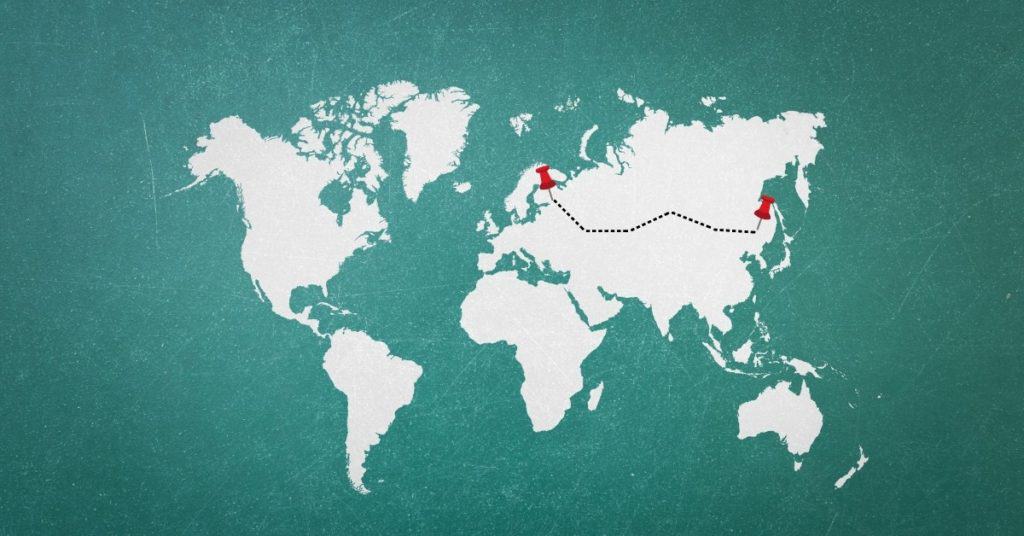
➤ a journey es un sustantivo que se refiere al acto de ir a algún lugar. A diferencia de trip , no conlleva la noción de retorno. Es el tiempo que transcurre entre la salida y la llegada.
- How long is the journey? haʊ lɒŋ ɪz ðə ˈʤɜːni ¿Cuánto dura el viaje?
- The journey takes 2 hours. ðə ˈʤɜːni teɪks tuː ˈaʊəz El viaje dura dos horas.
➤ De forma más abstracta, journey también se utiliza para un viaje espiritual: a spiritual journey .
- The spiritual journey to get to know your true self will be long. ðə ˈspɪrɪtjʊəl ˈʤɜːni tuː gɛt tuː nəʊ jɔː truː sɛlf wɪl biː lɒŋ El viaje espiritual para llegar a conocerte será largo.
Para terminar este curso y comprobar tus conocimientos, aquí tienes un pequeño ejercicio.
¿Cómo lo dirías? How would you say?
1/ El trayecto dura media hora.
2/ ¡Qué gran viaje!
3/ Siempre viajo en tren.
4/ Bob está de viaje de negocios.
5/ Viajar puede ser agotador.
1/ The journey lasts half an hour.
2/ What a nice trip!
3/ I always travel by train.
4/ Bob is on a business trip.
5/ Travelling can be tiring.
Otros errores comunes de vocabulario en inglés:
- La diferencia entre look, watch y see
- La diferencia entre say, tell, talk y speak
- La diferencia entre afford, supply y provide
Ce cours vous a aidé ? Partagez votre avis !

Este curso de inglés fue creado por Thomas
Tengo un PGCE Lenguas Extranjeras Modernas y he estado enseñando idiomas desde 2007. Primero FLE (francés como lengua extranjera) durante unos años, luego inglés.
Durante mis años de experiencia he tenido la oportunidad de trabajar con todo tipo de públicos (infantil, primaria, secundaria, adultos) para diversas instituciones y organizaciones en Francia y en el extranjero.
Descubrir a Thomas Gauthier
Deja un comentario Cancelar la respuesta
Aprender inglés.
Primeros pasos en inglés
Pruebas de nivel
Expresión oral
Archivos PDF
Conjugación
Tiempos verbales
Tablas de conjugación
Concordancia de tiempos
Lista de verbos irregulares
El substantivo
Vocabulario
Listas de frecuencias
Vocabulario básico
Vocabulario general
Vocabulario profesional
Vocabulario de viajes
ISpeakSpokeSpoken
Adrien Jourdan
Enlaces útiles
Índice del curso
Contacte con
ISpeakSpokeSpoken se encuentra en Talinn, Estonia (Vesivärava tn 50-201)
Información
Información legal
Condiciones generales de venta
Copyright 2023 - Todos los derechos reservados 2023 | ISpeakSpokeSpoken | ¡Diviértete aprendiendo inglés!
Quel est votre votre VRAI niveau en anglais: le test
Le plan précis pour parler anglais dans les semaines qui viennent

Comment ENFIN parler ET comprendre l’anglais sans bloquer ni chercher vos mots

Un enfoque práctico del idioma, con énfasis en el inglés hablado y la pronunciación para tener conversaciones reales rápidamente.

- Registrazione

Quality Point(s): 38
Risposte: 11
Numero di "Mi Piace": 8
- Inglese (Stati Uniti)
- Indonesiano
Qual è la differenza tra trip e travel e tour e journey ?Sentiti libero di rispondere con un esempio.
- Report copyright infringement

Quality Point(s): 228
Risposte: 70
Numero di "Mi Piace": 32
Trip = very short vacation, usually last a few days or a few hours. can be overseas or in your own country Travel = verb, travel by car, train, plane Tour = visiting a place to learn things about it, such as tour of a city or museum Journey = more associated with adventure but similar to trip, like journey across the sea or journey through the desert. you could also say journey across a continent and it would be ok but younger people might look at you weirdly
Questa risposta ti è stata d'aiuto?
- Perché hai risposto con "Hmm..."?
- Il tuo feedback non verrà mostrato agli altri utenti.
@anyehoon Trip = most similar to 여행 as noun Travel = If someone asks "How will you be travelling" you can say by a plane or car. I don't know the exact word in Korean but it will probably be the verb form of 여행 2. Tour would be part of the trip Some translating apps translate 여행 as 'travel' but it sounds unnatural to say 'I went on a travel'
- Mostra di più
- Qual è la differenza tra Have a soft spot for e Be a sucker for ?
- Qual è la differenza tra What's next? e What next? e What's the next? ?
- Qual è la differenza tra Underwhelming e Disappointed ?
- Qual è la differenza tra pull through e power through ?
- Qual è la differenza tra hello e hellow e hi ?
- Qual è la differenza tra un buco e una buca ?
- Qual è la differenza tra What is the difference between scusi, scusate e Scusa ?
- Qual è la differenza tra dapperttuto e ovunque ?
- Qual è la differenza tra forza! e in gamba! ?
- Qual è la differenza tra labbra tumide e labbra carnose ?
- Qual è la differenza tra assomigliare e somigliare ?
- Come si dice in Coreano? In Korea, ID photos have a red or white background
- Qual è la differenza tra misguided e misleading ?
Il simbolo del livello della lingua mostra la tua conoscenza della lingua di tuo interesse. Impostare il tuo livello aiuta gli altri utenti ad utilizzare il linguaggio giusto nelle risposte, più facile da capire o più complesso.
Difficoltà nel capire anche risposte semplici nella lingua scelta.
Capace di formulare semplici domande e capire semplici risposte.
Capace di formulare ogni tipo di domanda generale e comprendere lunghe risposte.
Comprende risposte lunge e complesse.
Show your appreciation in a way that likes and stamps can't.
By sending a gift to someone, they will be more likely to answer your questions again!

If you post a question after sending a gift to someone, your question will be displayed in a special section on that person’s feed.

Fai domande a utenti madrelingua gratis

Risolvi i problemi più facilmente con l'app!
- Trova le informazioni che cerchi fra 45 milioni di risposte inserite!
- Accedi alla funzione di traduzione automatica durante la ricerca di risposte!
- It’s FREE!!
- Qual è la differenza tr...
- Car Rentals
- Airport Transfers
- Attractions & Tours
- Flight + Hotel
- Destinations
- Trip.com Rewards

Yekaterinburg

Things to do in Yekaterinburg

Yel'tsin Center

Raduga Park

V. Mayakovskiy Central Park of Culture and Recreation

Leroy Merlin
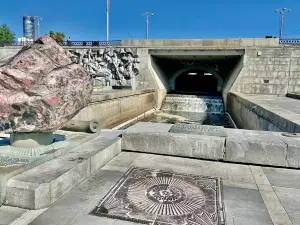
Yekaterinburgskiy Zoopark

Aqua Park Limpopo

Ekaterinburg Arena

Zelonaya Roshcha
What to eat.

Engels Coffee

Britannia English Pub & Whisky Cellar

Maximilian's

Cafe Planetariy

GADY, Kraby & Vino
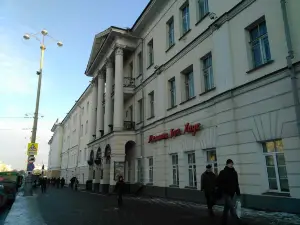
Mammas Big House
Yekaterinburg moments: through travelers' eyes.

Best of Yekaterinburg
Top 5 premium hotels in yekaterinburg.

Vyisotskij Hotel

Apartments Vysotsky

Ramada Ekaterinburg Hotel

Atrium Palace Hotel
Top 8 4-star select hotels in yekaterinburg.

Park Inn by Radisson Ekaterinburg

Four Elements Ekaterinburg
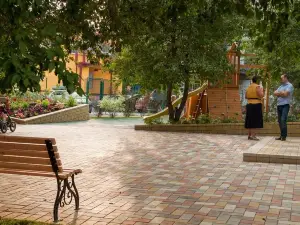
Renome Hotel

Hyatt Regency Ekaterinburg

Place Ekaterinburg
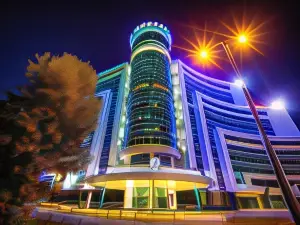
Hotel Onegin

Azimut City Hotel Airport Ekaterinburg

Oktyabrskaya Hotel
Other recommended cities.
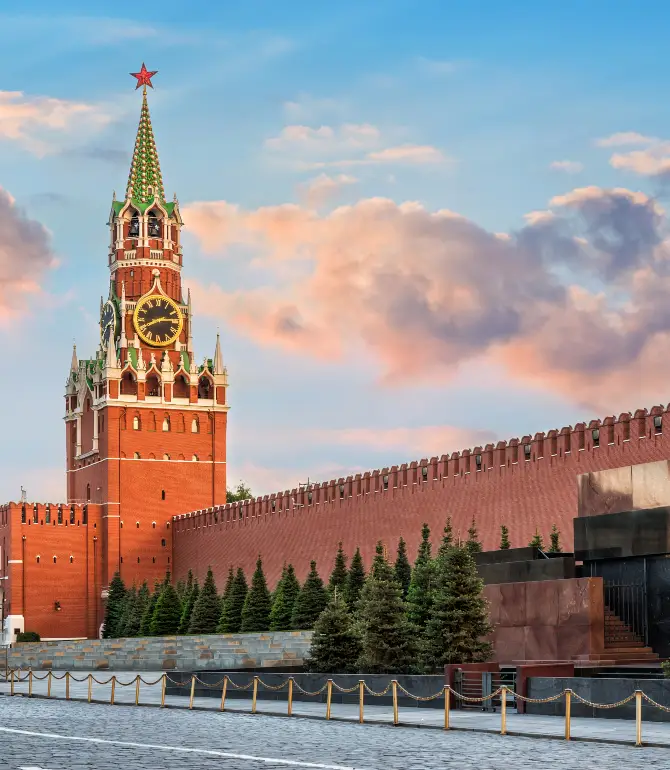
- Customer Support
- Service Guarantee
- More Service Info
- About Trip.com
- Terms & Conditions
- Privacy Statement
- About Trip.com Group
Other Services
- Investor Relations
- Affiliate Program
- List Your Property
- Become a Supplier

IMAGES
VIDEO
COMMENTS
Trip VS Travel. Un'altro suggerimento per capire le differenze tra "Trip" e "Travel" potrebbe essere questo: Travel è una parola più generale che descrive l'atto di andare da un posto all'altro senza per forza implicare il viaggio di ritorno.; Trip è un viaggio di relativamente più breve durata, che ha uno scopo (vacanza, lavoro) e che include di solito il ritorno.
Travel sickness = nausea causato dal mezzo di trasporto. Travel time = tempo di tragitto. N.B. Mentre journey e trip possono essere usati indiscriminatemente a volte, una differenza c'è, come illustra questo esempio: The trip went very well, but the return journey was a disaster. Il viaggio (completo) è andato molto bene, ma il viaggio ...
Comprendere le distinzioni tra un trip, una journey e il concetto più ampio di travel arricchisce le nostre abilità linguistiche e la nostra consapevolezza culturale. Ci permette di comunicare efficacemente le nostre esperienze e apprezzare la diversità del mondo. Grazie per avermi accompagnato in questo viaggio del travel in inglese.
One piece of travel (going from one place to another) - usually a long distance. The journey takes 3 hours by plane or 28 hours by bus. He made the 200-mile journey by bike. "A journey of a thousand miles must begin with a single step" - Lao-tze, Tao Te Ching. We can also use journey in a more "metaphorical" way to talk about ...
Spesso si incontra il termine travel in parole composte come: travel documents travel tickets travel agents travel sickness (Impara anche la differenza tra questi phrasal verbs per viaggiare) 3# Journey. E' il sostantivo che indica il singolo spostamento verso un luogo, di solito su una lunga distanza. The journey takes 3 hours by plane or 28 ...
Scopriamo insieme la differenza tra TRIP, TRAVEL e JOURNEY in inglese. Dopo questo video sono certa che non le confonderai più.Guarda tutto il video e poi fa...
Travel: The word travel is used to talk about the act of travelling in general. 1. My hobbies are music and travel (en vez de 'I love cinema and travel') Travel can be both a noun and verb. As a noun, it names the act of going from one place to another; and as a verb it describes the action of doing so. *Verbs: Louise travels a lot for work.
A journey is used more to refer to the journey itself, although often there is little difference. Compare the following: 'The journey was rotten. The fat man who sat next to me snored all the time.' 'The trip was great, we managed to do everything that we had intended.'. To journey is an archaic verb not used now.
Trip. 'Trip' is a countable noun and refers to a return journey (to, and back from, a place). It usually refers to a journey which takes a short time, or covers a short distance. It can also be used with an adjective to describe the type of trip. We went on a day-trip to Venice.
A trip can be a short journey. One can take a trip to the store, but it would be unusual (except in poetic exaggeration) to take a journey to the store. A journey would often imply a longer (in terms of time and/or distance) trip, perhaps to multiple destinations, or with a greater sense of unknown. A journey may not be fully planned out ahead ...
È bellissimo viaggiare e poter parlare dei nostri viaggi! In inglese ci sono delle differenze importanti nei vari modi di dire tragitto, vacanza, soggiorno e...
La maggior parte delle persone NON SA la differenza!! Vocaboli ESSENZIALI per l'estate!! Qual è la differenza tra TRAVEL, TRIP e JOURNEY??Vi spiego tutto!!!I...
Sinonimo di trip, travel I think it depends on how you use the words. A trip is going some place. Trips don't have to be long, it can be a trip to the zoo or a weekend trip with friends. Travel is when you are traveling somewhere that's further. Such as "I had to travel to Europe for my job". A journey can be used differently as well depending on the sentence. For example: "My sister and I ...
Little Rock, Arkansas USA. USA. Jan 17, 2006. #7. "Journey" and "trip" are often interchangable, although "journey" probably would describe an endeavor that was longer and perhaps more arduous than a "trip." "Travel" is what you are doing when you are taking a "trip" or a "journey."
un viaje de negocios = a business trip. My brother is on a business trip until Friday. maɪ ˈbrʌðər ɪz ɒn ə ˈbɪznɪs trɪp ənˈtɪl ˈfraɪdeɪ Mi hermano está de viaje de negocios hasta el viernes. 4. journey a journey es un sustantivo que se refiere al acto de ir a algún lugar. A diferencia de trip, no conlleva la noción de ...
14. Visit the Old Water Tower. Source: Photo by Wikimedia Commons user Dom kobb used under CC BY-SA 3.0. The old water tower is one of Yekaterinburg's oldest structures dating back to the 1800s and stands as a monument of industrial architecture. It is one of the city's endearing symbols.
Last Updated on January 6, 2024 by Irena Domingo. Yekaterinburg is the capital of the Urals and an obligatory stop of the Trans-Siberian Railway. It is the fourth city in the country and the place where Europe and Asia meet. It is historically known to be the place where in 1918 the Bolsheviks murdered Tsar Nicholas II and his entire family.
Khmer. Trip = very short vacation, usually last a few days or a few hours. can be overseas or in your own country. Travel = verb, travel by car, train, plane. Tour = visiting a place to learn things about it, such as tour of a city or museum. Journey = more associated with adventure but similar to trip, like journey across the sea or journey ...
5. Chertovo Gorodische. 112. Points of Interest & Landmarks. By saronic. The about 100m long and 20m high rock wall is impressive. It is a phenomenon, which can be found also in other places... 6. Vaynera Street, Yekaterinburg.
Yekaterinburg Travel Guide. Yekaterinburg is a city in Sverdlovsk Oblast, Russia. It has many popular attractions, including Yel'tsin Center, Raduga Park, V. Mayakovskiy Central Park of Culture and Recreation, perfect for a trip! Show Less. Cloudy 11 - 13℃.